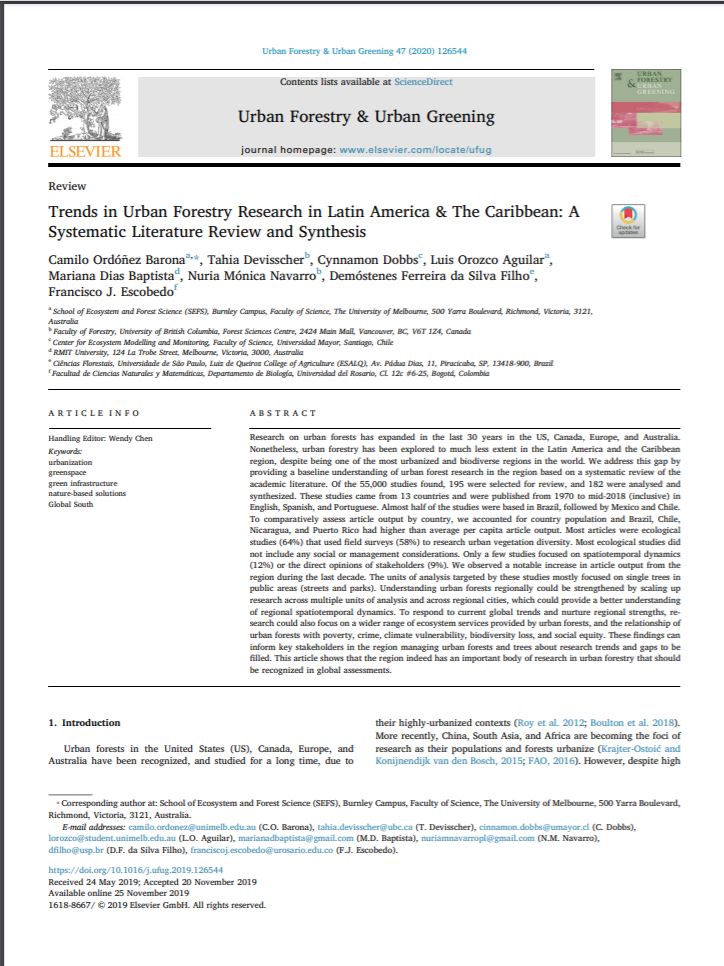Trends in Urban Forestry Research in Latin America & The Caribbean: A Systematic Literature Review and Synthesis

Fecha
2020Autor
Dobbs, Cynnamon [Univ Mayor, Fac Sci, Ctr Ecosyst Modelling & Monitoring, Santiago, Chile]
Barona, Camilo Ordonez
Devisscher, Tahia
Aguilar, Luis Orozco
Baptista, Mariana Dias
Navarro, Nuria Monica
da Silva Filho, Demostenes Ferreira
Escobedo, Francisco J.
Ubicación geográfica
Notas
HERRAMIENTAS
Acceda a títulos restringidos
¿Cómo descargar?Resumen
Research on urban forests has expanded in the last 30 years in the US, Canada, Europe, and Australia. Nonetheless, urban forestry has been explored to much less extent in the Latin America and the Caribbean region, despite being one of the most urbanized and biodiverse regions in the world. We address this gap by providing a baseline understanding of urban forest research in the region based on a systematic review of the academic literature. Of the 55,000 studies found, 195 were selected for review, and 182 were analysed and synthesized. These studies came from 13 countries and were published from 1970 to mid-2018 (inclusive) in English, Spanish, and Portuguese. Almost half of the studies were based in Brazil, followed by Mexico and Chile. To comparatively assess article output by country, we accounted for country population and Brazil, Chile, Nicaragua, and Puerto Rico had higher than average per capita article output. Most articles were ecological studies (64%) that used field surveys (58%) to research urban vegetation diversity. Most ecological studies did not include any social or management considerations. Only a few studies focused on spatiotemporal dynamics (12%) or the direct opinions of stakeholders (9%). We observed a notable increase in article output from the region during the last decade. The units of analysis targeted by these studies mostly focused on single trees in public areas (streets and parks). Understanding urban forests regionally could be strengthened by scaling up research across multiple units of analysis and across regional cities, which could provide a better understanding of regional spatiotemporal dynamics. To respond to current global trends and nurture regional strengths, research could also focus on a wider range of ecosystem services provided by urban forests, and the relationship of urban forests with poverty, crime, climate vulnerability, biodiversity loss, and social equity. These findings can inform key stakeholders in the region managing urban forests and trees about research trends and gaps to be filled. This article shows that the region indeed has an important body of research in urban forestry that should be recognized in global assessments.
Coleccion/es a la/s que pertenece:
Si usted es autor(a) de este documento y NO desea que su publicación tenga acceso público en este repositorio, por favor complete el formulario aquí.